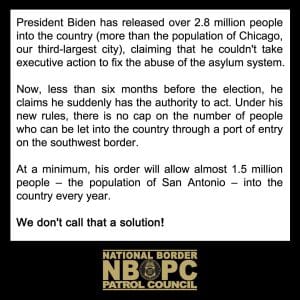THE WHISTLEBLOWER PROTECTION ACT OF 1989
Introduction
Congress enacted the Whistleblower Protection Act of 1989 (Public Law No. 101-12) to strengthen protections for Federal employees, former employees, and applicants for employment who claim that they have been subjected to personnel actions because of their whistleblowing activities. The Act made significant changes affecting appeals by whistleblowers to the U. S. Merit Systems Protection Board (MSPB). The regulations governing the Whistleblower Protection Act are codified in Title 5 of the Code of Federal Regulations (C.F.R.), Chapter II, Part 1201 through 1209.
Whistleblowing
An agency engages in a prohibited personnel practice if you are subjected to a personnel action taken, proposed, threatened, or not taken because of your whistleblowing activities. Whistleblowing means disclosing information that you reasonably believe is evidence of a violation of any law, rule, or regulation, or gross mismanagement, a gross waste of funds, an abuse of authority, or a substantial and specific danger to public health or safety.
You are protected if you make such a disclosure to the Special Counsel, the Inspector General of an agency, or another employee designated by an agency head to receive such disclosures. You are also protected if you make such a disclosure to any other individual or organization (e.g., a congressional committee or the media), provided that the disclosure is not specifically prohibited by law and the information does not have to be kept secret in the interest of national defense or the conduct of foreign affairs.
Appeals
As a federal employee, you have the right to appeal certain personnel actions taken against you to the MSPB. If you are subject to a personnel action that you believe is the result of a prohibited personnel practice, you have the right to file a complaint with the Office of Special Counsel. Prohibited personnel actions include appointments, promotions, details, transfers, reassignments, and decisions concerning pay, benefits, awards, education, or training. There are two kinds of whistleblower appeals, differing principally in the way they reach the Board: an Aotherwise appealable action@ and an Aindividual right of action@ appeal. You must file your appeal in writing with the Board’s regional office serving the area where your duty station was located when the action was taken.
Appeals must meet the filing deadlines and must contain evidence or argument that the action was based on your whistleblowing.
Stays
A Stay orders the agency to suspend the personnel action being appealed. You may file a stay request with the Board in connection with either kind of whistleblower appeal. The Board must allow the agency an opportunity to comment on the stay request, and an administrative judge may hold a hearing or a telephone conference on the request. Stays remain in effect until the Board issues a final decision on your appeal, and agencies can be forced to comply with stay orders.
Burdens of Proof
Under the Whistleblower Protection Act, the Board must order corrective action if you demonstrate that your whistleblowing was a contributing factor in the personnel action taken, proposed, threatened, or not taken against you. You have the burden of proving that your whistleblowing was a contributing factor in the personnel action. The Board will not order corrective action, however, if the agency demonstrates by clear and convincing evidence that it would have taken the same action in the absence of your whistleblowing.
You may request judicial review of a final Board decision on your whistleblowing appeal C either an initial decision of an administrative judge that has become final or the Board’s decision on a petition for review C by the U. S. Court of Appeals for the Federal Circuit.
A Caveat for Prospective Whistleblowers
Many federal employees filing under the Whistleblower Protection Act have found that there are simply not enough available protections against retaliation. Some whistleblowers report that the Office of Special Counsel is often biased toward management, and fails to find evidence of retaliation even though Courts have ruled in favor of the whistleblower in the same case. A good rule of thumb is to carefully evaluate all options before deciding to file under the WBPA, at least until employee protections are established.
For Additional Information
The Board’s regulations are found in Chapter II, Parts 1200 through 1209, of Title 5 of the Code of Federal Regulations. Copies of the Board’s regulations are available at any Board office, agency libraries, agency personnel or administrative offices, most public libraries, and the national Union.
For information regarding the filing of whistleblower complaints to a regional office of the Special Counsel, contact the Office of Special Counsel, 1120 Vermont Avenue, N.W., Washington, D. C. 20005.


